Six things we learnt from the Netflix Movistar documentary
The six-part series deserves credit for not shying away from what was a difficult year for the Spanish squad
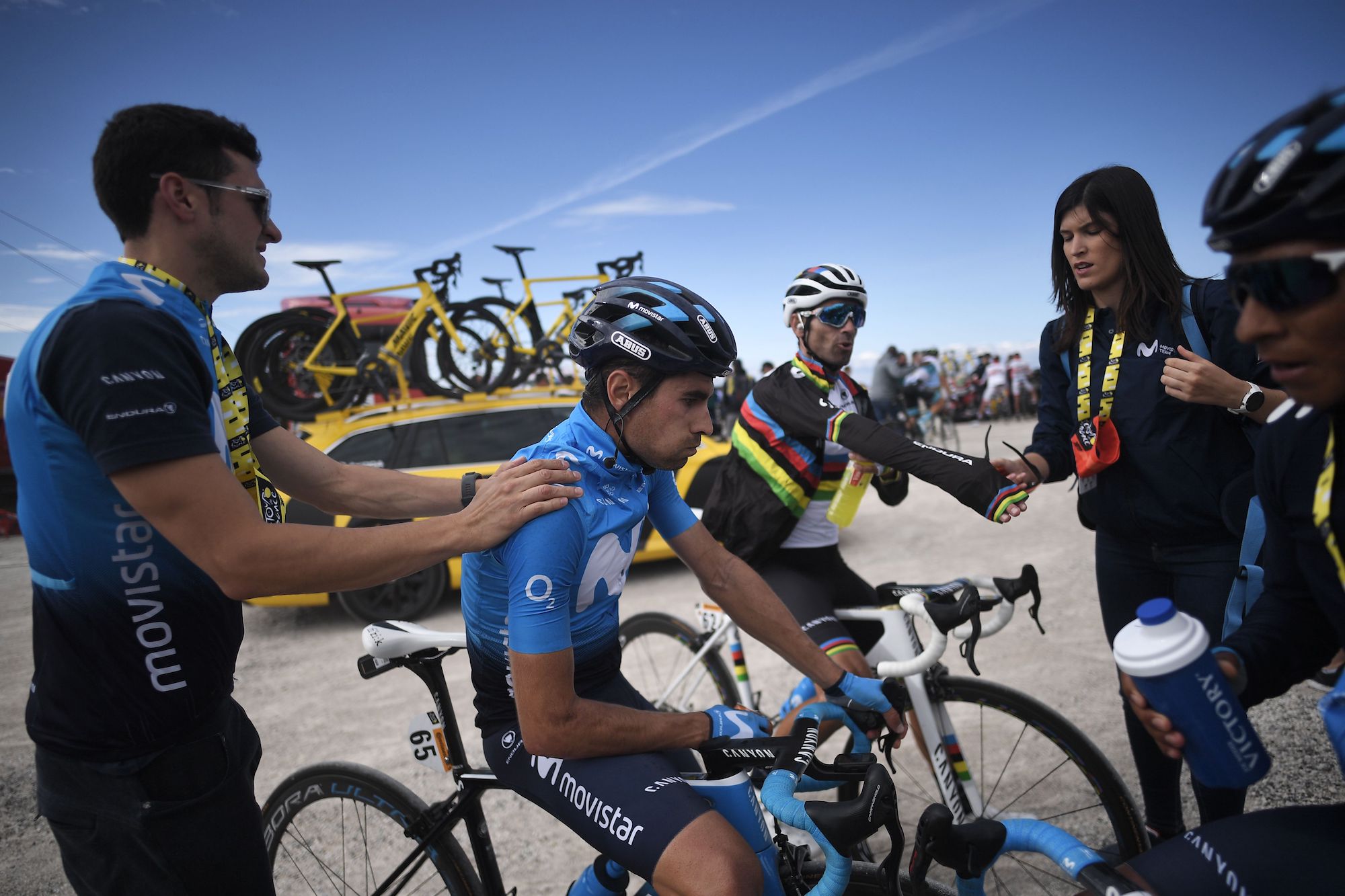
The Movistar Netflix documentary arrives at a time when cycling fans are in great need. No racing coupled with unending series on streaming services about everything but cycling lies before us, until last week that is.
'The Least Expected Day' provides an honest and eye-opening account into a 2019 season that saw Movistar record one Grand Tour victory but also make headlines for the wrong reasons during the rest of the year.
Warring team-mates and communication breakdowns typified their Tour de France and Vuelta a España campaigns, where the team managed three top 10 placings in each Grand Tour without taking home the leader's jersey.
Getting a peek behind the scenes allows us to piece together exactly what went down during this tumultous 2019 season and we've picked out six of the most interesting points of discussion.
Alejandro Valverde suffered 'Van der Poel wheelie crash' as he struggled to adjust to life as world champion
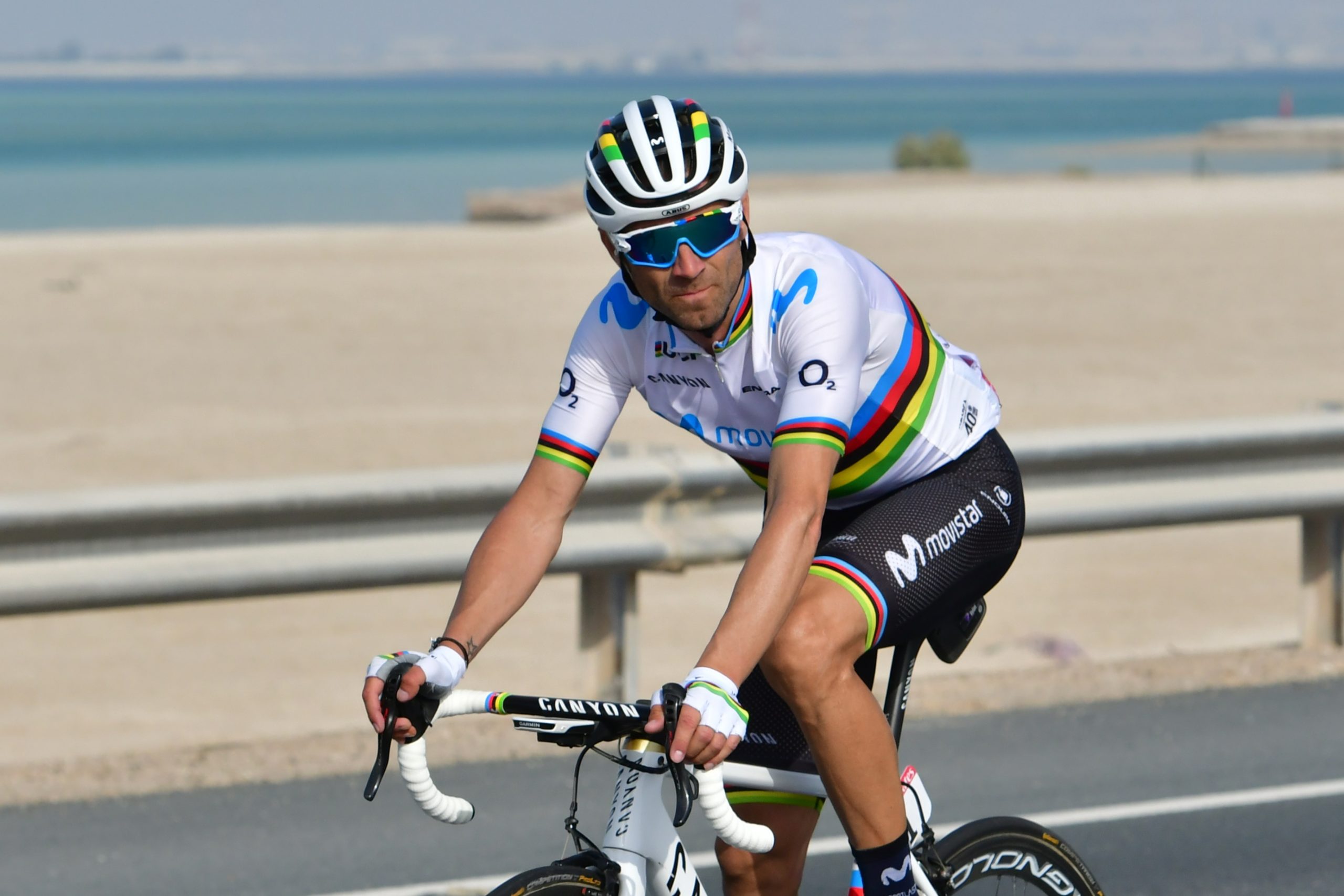
"The curse of the rainbow jersey is that it takes away your will to win. Getting used to it isn't easy," says Valverde. "I had press sessions every day. In the morning and in the afternoon. Almost every day up until February. Also, wearing the jersey in the race...you're always being watched but it's much worse when you're wearing the jersey. Everyone knows where you are and that also weighs you down. Wearing the jersey has soothed me, it's taken away my hunger for victory. And in the end, that matters."
Most riders rarely put together the palmarès Alejandro Valverde has, even before his Worlds win in Innsbruck. For a man who won the Vuelta a España in 2009, a home Grand Tour victory barely stunted his thirst for wins. Therefore, that his other biggest career achievement dented his ambition will come as a surprise.
Get The Leadout Newsletter
The latest race content, interviews, features, reviews and expert buying guides, direct to your inbox!
"Eventually it got to him," explained sports director Pablo Lastras. "He was unable to filter it out, to say no..."
This lack of hunger was further complicated by a crash three days before Valverde was looking to win a fifth Liège-Bastogne-Liège title while out on a training ride.
"Jokingly, I said: 'I'll pull a Van der Poel.' I did a wheelie and I fell flat on the ground. I was down for 15 minutes thinking I'd broken something," Valverde explained.
"We wondered if he could go out [to race]," says assistant Juan Carlos Escámez. "He was very sore, he had trouble moving. He rested a bit and it turned out alright."
However, with over 100km left to race, Valverde abandoned the Ardennes Monument.
Tour de France sees Nairo Quintana and Mikel Landa lose faith in the Movistar project

Episode four begins with a tone you'd expect to see on a true crime Netflix documentary, rather than a fly on the wall series about a professional cycling team.
"If they don't resolve their differences then we have a problem," warns Valverde of the issues between Mikel Landa and Nairo Quintana at the 2019 Tour de France.
With both riders billed as overall classification prospects at the start of the 106th edition, Landa would once again find himself bemoaning his lack of fortune after stage 10, when he crashed in the final 20km and lost over two minutes to his rivals. With Quintana staying safe from the crosswinds and finishing in the front group, Movistar still had hope, but not Landa.
"I didn't know what to do," Landa says. "It took me a couple of days to get over it. I didn't feel like doing anything. I didn't want to talk to anyone, didn't want to be cheered up. Nothing. I did consider dropping out of the race."
Then, a few days later on the Tourmalet stage, Movistar drive a hard pace to take the race to their rivals when suddenly Quintana starts dropping out of the GC group.
"We'd pushed and gained the advantage in the previous course, Andrey was going at a great pace. That's when Nairo told him to slow down a bit then to slow down a bit more, and he did it. But he didn't say to slow down because he wasn't feeling well. We kept going and we did a lot of damage," says Valverde.
"We had communication issues," Landa adds. "He could've also told us, 'look, we're not going to go through with the plan. I'm not well. I don't feel well today.'"
"Disappointed? No. We were the ones who put Nairo in that situation," says one sports director. "It's true that this happened partly as a consequence of our pace, but this was also probably not Nairo at his best," adds Unzué.
The next day, on the bus before stage 15, the team tells Quintana to tell them if he isn't feeling well and that he has to trust them. Nairo just stares back blankly.
"There was more tension. Ultimately, there was Nairo who wanted to win the Tour, and there was me, who also wanted the title," says Landa. "It was complicated. One day we favoured one, the next day we favoured the other, and we didn't progress."
"It felt like a civil war within the team. I know Nairo and I know Mikel very well. We did our best to keep things civil in the bus. But I knew each of them had their own perceptions, and they just weren't compatible," Valverde explains.
Both Unzué and Valverde go on to say Quintana and Landa should have focused more on leading the race rather than the team, but it's clear the rivalry seemed to hinder both riders from properly asserting themselves on the race.
"There isn't a big difference between them, neither has to admit that the other one is better and that he should be there to assist him. They feel like leaders and that's that," says Unzué. "The problem is not that they have to lead the team, they have to lead the race."
"Those who say they want a team working for them at 100 per cent...if they weren't in the lead it's because they were unable to, right?" says Valverde, and he has a point. If Quintana and Landa are correct in that they were unable to perform due to the team then Valverde still finished second in the Vuelta a España by his own volition.
Vuelta a España highlighted problems weren't just the riders

While a lot of the series focuses on the undisputed talent of Movistar's riders, while also documenting their tribulations, stage 19 of the Vuelta a España shows the clearest point of contention between the riders as a whole and their management.
With Primož Roglič tightening his grip on the leader's jersey and the remaining days of racing decreasing, Movistar plan a section to attack the race. At this exact point, claim Movistar, Roglič crashed, meaning he was left behind while the Spanish squad drive a hard pace and split the bunch. After some protestation from the peloton, Movistar relent, but the furore has already erupted and the riders take the brunt of their managers' decision to keep riding hard despite the race leader being caught up in a crash.
"I don't like to press on when people are down. Some are okay with it, some aren't," is Soler's view, with Alejandro Valverde being a victim of his rainbow bands and feeling the brunt of the criticism from his rivals.
"Alejandro felt bad," explains Lastras. "He said that being world champion, everything he'd achieved all those years, was lost in a moment because he didn't stop for a minute."
At the end of the race, an emotional José Luis Arrieta apologises to the team for making the call to keep racing.
"Personally, I've been heartbroken since the other day," he says. "But well, it is what it is. I'll have to get over it and I will. I'm very sorry, I don't want to see your image tarnished. I don't want to see you dragged around. When we decide something, it's because there's a consensus, about what's best from the team at a given moment, that's all there is to it. I want to apologise for that, but I want you to know we thought it through and I do what I do with your best interests in mind."
After the sometimes farcical nature of the team at the Tour de France, their demons were still clearly hanging over them during the Spanish Grand Tour. While there is no diminishing the stressful environment that these decisions had to be made in, episodes such as this one show Quintana and Landa weren't wholly to blame for Movistar misfiring during 2019.
Mikel Landa 'expected more trust' as luck deserted him in 2019
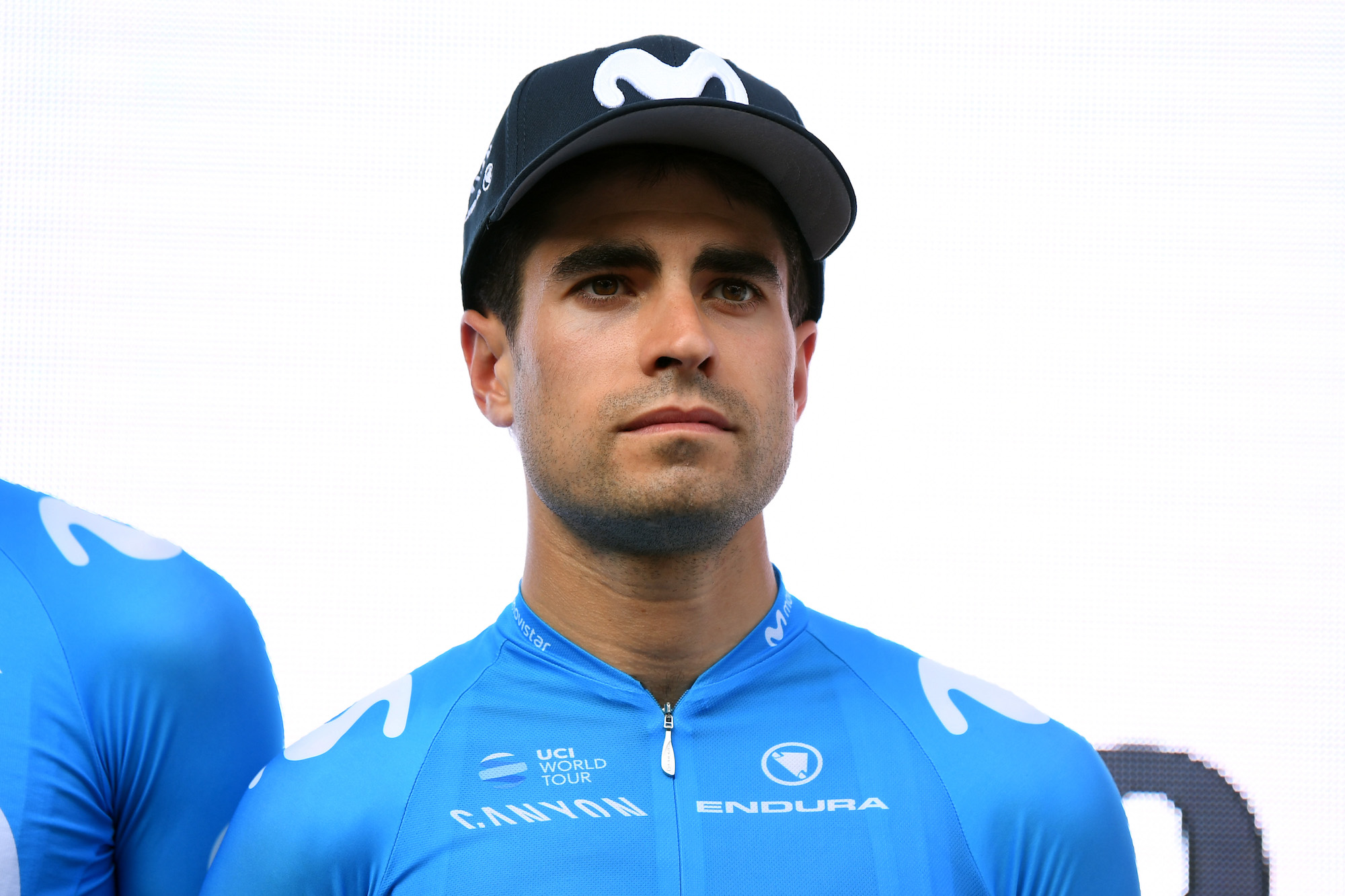
Maybe it's just his doleful eyes, but Mikel Landa cuts a morose figure for much of the Netflix series. It becomes apparent there wasn't just one singular factor that eventually led the Spaniard to leave Movistar and his scorecard for the year certainly doesn't make for awful reading.
However, its the fact that his fourth place at the Giro and sixth at the Tour could have been much better.
"When I got into the team, Alejandro and Nairo were in it. I knew that and it didn't bother me sharing the leadership with them. I believed I'd earned their trust, enough for them to give me a chance. I expected more trust, more support. I didn't get what I expected, what I needed," Landa says.
However, it would be unfair to entirely blame his team for not succeeding in his 2019 goals. Misfortune with crashes, peloton splits and poor time trial performances contributed to him missing out on two potential Grand Tour podiums, something the 30-year-old does accept.
"Maybe sometimes I don't think things through. Sometimes the body takes over and you don't think straight. It's also about being an ambitious racer and giving people what they want."
Landa explains the struggles of his season, and it now comes as no surprise why he sought out a non-European team in Bahrain-McLaren, where he will likely be granted more peace from the press.
"The worst part is probably being a Spaniard in a Spanish team. Anything you're involved in is news and people start debates, some support you, some are against you," Landa says. "Being overexposed to public opinion was probably the worst, the most unpleasant."
Landa finds it quite hard to watch his younger, less established team-mate Richard Carapaz not succumb to the same misfortune in the Giro and have to support the Ecuadorian on to victory.
"I still had my ego," Landa says. "I wanted to keep doing well at the Giro, but I didn't want to harm the team."
During the team's celebration meal at the end of the Italian Grand Tour, Landa opens up in his speech to the assembled team staff, riders and their families.
"You fill me with jealousy," the Spaniard says to Carapaz. "A healthy jealousy. In short, I've long since realised that I might not win many trophies but I will collect experiences and good memories. This Giro was one of the most emotional and the most intense of my career. So, thank you for everything."
After the further disappointment of the Tour, Landa goes on to say: "Let them get on a bike and take a shot at this mess, see if they do better than me. A new generation is coming [Enric Mas]. I understand the team wants to bet on it. I don't have a clear role or proposal for next year's team, so it's what it is." Landa clearly knew his time was up.
Carapaz's move to Ineos took Movistar by surprise
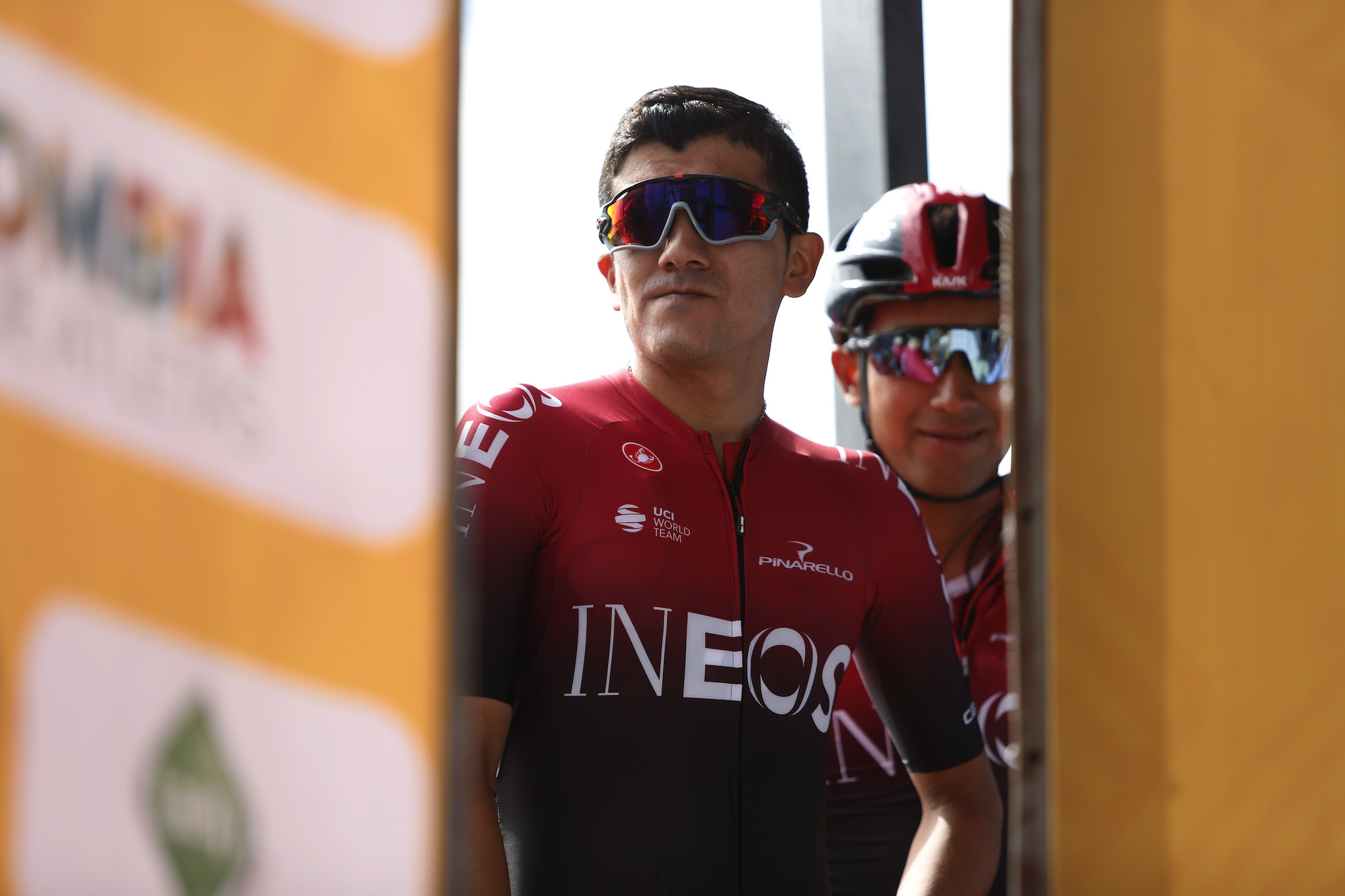
Not many people saw Richard Carapaz's Giro victory coming, and with the fractious relationships with Mikel Landa and Nairo Quintana seeing both riders edging towards the exit at the end of 2019, Movistar were hoping to place their future in not only Marc Soler and the incoming Enric Mas, but also their newest Grand Tour winner.
However, in a move that seems to have caught the top brass of the Spanish squad off guard, their Ecuadorian rider decided to opt for Team Ineos, to become the fourth active Grand Tour winner within the British squad.
"I am not concerned. He was disloyal. I don't want someone disloyal in my team," says Pablo Lastras, who always looked as if he was chewing a wasp in his interview in the documentary.
Unzué takes a more conciliatory line: "I wouldn't call him disloyal. You feel worse when it seems that you weren't told things which had been decided well in advance."
Spanish super-agent Giuseppe Acquadro told Marca that Carapaz had actually been thinking of leaving Movistar even before he won the Giro, although it seems this wasn't communicated to his current squad. In fact, the dispute between the team and the agent, which spilled out into the media, isn't touched upon by the documentary.
"They paid a bigger price than us here, but I think it was rash because we had the money this year," Lastras continued, which Carapaz verified, before adding that he was also looking to escape the shadow of Valverde, Landa and Quintana. Transferring to Ineos, who host Egan Bernal, Geraint Thomas, Chris Froome and Rohan Dennis doesn't seem to immediately rectify this problem, however.
"In the end, it was about money. I also have to look at the benefits of being in this team or the other. Here, I was always in someone's shadow and I wanted to do better," Carapaz said.
Future leadership and communication struggles are far from solved
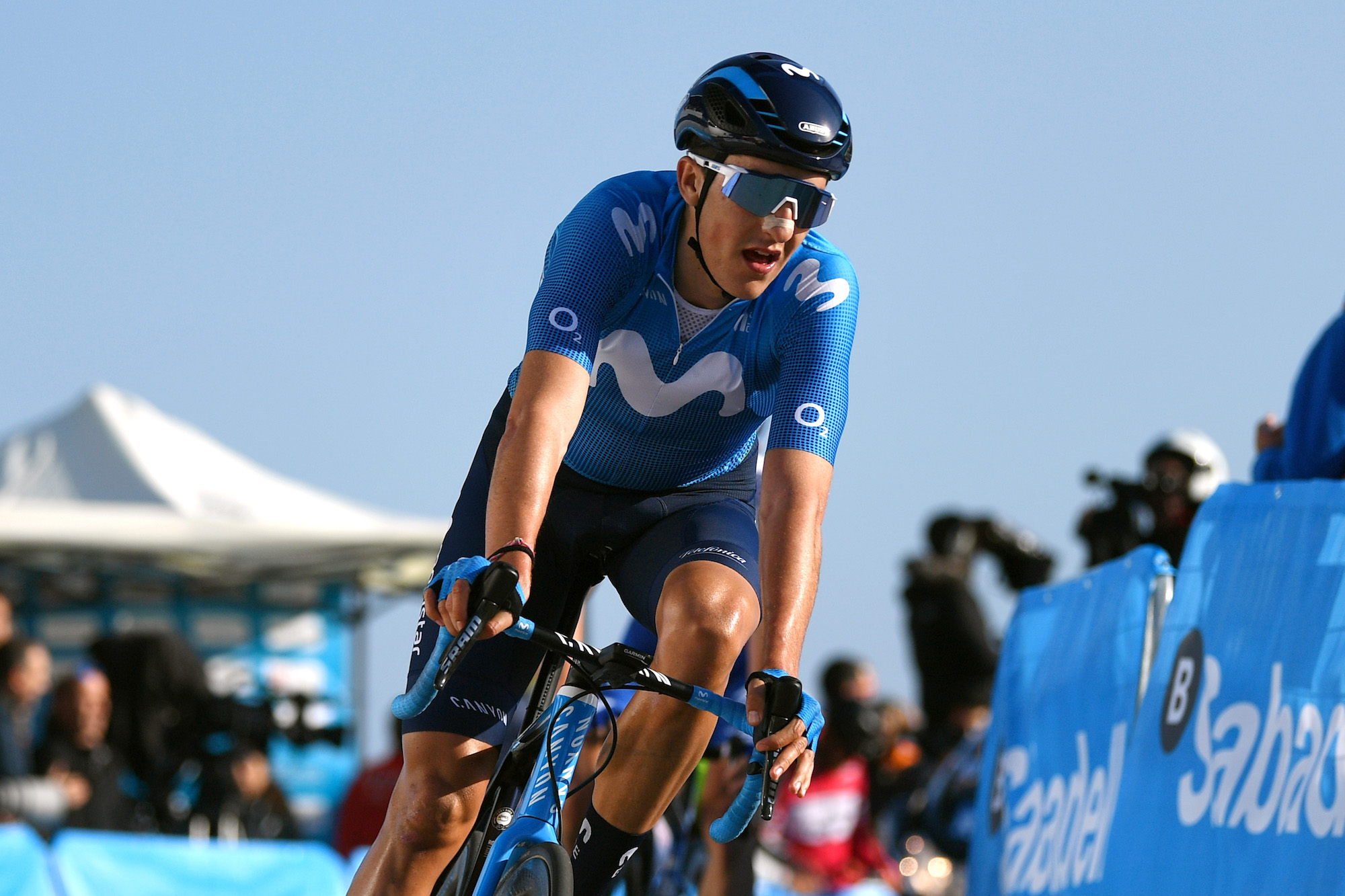
After Richard Carapaz failed to make the start of the Vuelta a España due to injury, where he was supposed to headline the team alongsie Marc Soler, Nairo Quintana was drafted in to take the Ecuadorian's place.
Soler realises this is a big chance for his career, but falls at pretty much the first hurdle, finishing the relatively uncomplicated stage two 10 minutes down. That forces the team to switch their focus to Nairo Quintana and Alejandro Valverde, with Marc Soler then finding himself up the road on stage nine.
The then 25-year-old wants to try for the stage victory himself but is told to wait for Quintana, who is making his way up towards his team-mate.
Soler initially refuses to stop. "You have to wait! That's what it's about today! It's what's important, Marc! Today we have to take advantage of our distance over Roglič." shouts sports director José Luis Arrieta from the car behind.
"When I heard them shouting for me to stop, I didn't understand. I told them I was alone, that I was about to win," is Soler's response in his interview after the event.
Soler throws his hands in the air, in full view of the TV cameras as he relinquishes his march towards the finish line.
"You're making us look like jackasses here!" comes the indictment from the team car. "Goddamnit! F***ing kids! Damnit!" Arrieta explodes, punching the roof of the car.
"Marc did everything wrong. Didn't play as a team, didn't listen," is Lastras assessment.
Ultimately, after waiting up for Quintana, the Colombian fails to follow Tadej Pogačar who takes the stage victory, with Quintana second. Maybe things would have been different had Soler immediately responded to team orders, but the stage result kind of makes Soler's point for him.
"They screwed me over," is Soler's final assessment of what happened.
At the end of the documentary Soler and the team say they hope he will step into the shoes vacated by the departed team leaders in 2020, and although later in the 2019 Vuelta he waits for Valverde as he is told, a question mark will remain of whether Soler has what it takes to become a true Grand Tour contender.
Valverde eventually finishes as the highest placed Movistar rider at the 2019 Vuelta, second to Primož Roglič, following up their Tour de France frustrations of three top 10 finishes without taking victory.
"I'm always at the Vuelta and I'm always the one who has to pull it off," Valverde smiles in the final episode. Second place isn't bad, especially at 39 years old. But the sense that Movistar wasted two good opportunities to follow up their Giro victory lingers. While Quintana, Carapaz and Landa have left the building, Valverde won't be around forever to prevent the team from phoning it in.

Thank you for reading 20 articles this month* Join now for unlimited access
Enjoy your first month for just £1 / $1 / €1
*Read 5 free articles per month without a subscription

Join now for unlimited access
Try first month for just £1 / $1 / €1
Jonny was Cycling Weekly's Weekend Editor until 2022.
I like writing offbeat features and eating too much bread when working out on the road at bike races.
Before joining Cycling Weekly I worked at The Tab and I've also written for Vice, Time Out, and worked freelance for The Telegraph (I know, but I needed the money at the time so let me live).
I also worked for ITV Cycling between 2011-2018 on their Tour de France and Vuelta a España coverage. Sometimes I'd be helping the producers make the programme and other times I'd be getting the lunches. Just in case you were wondering - Phil Liggett and Paul Sherwen had the same ham sandwich every day, it was great.
-
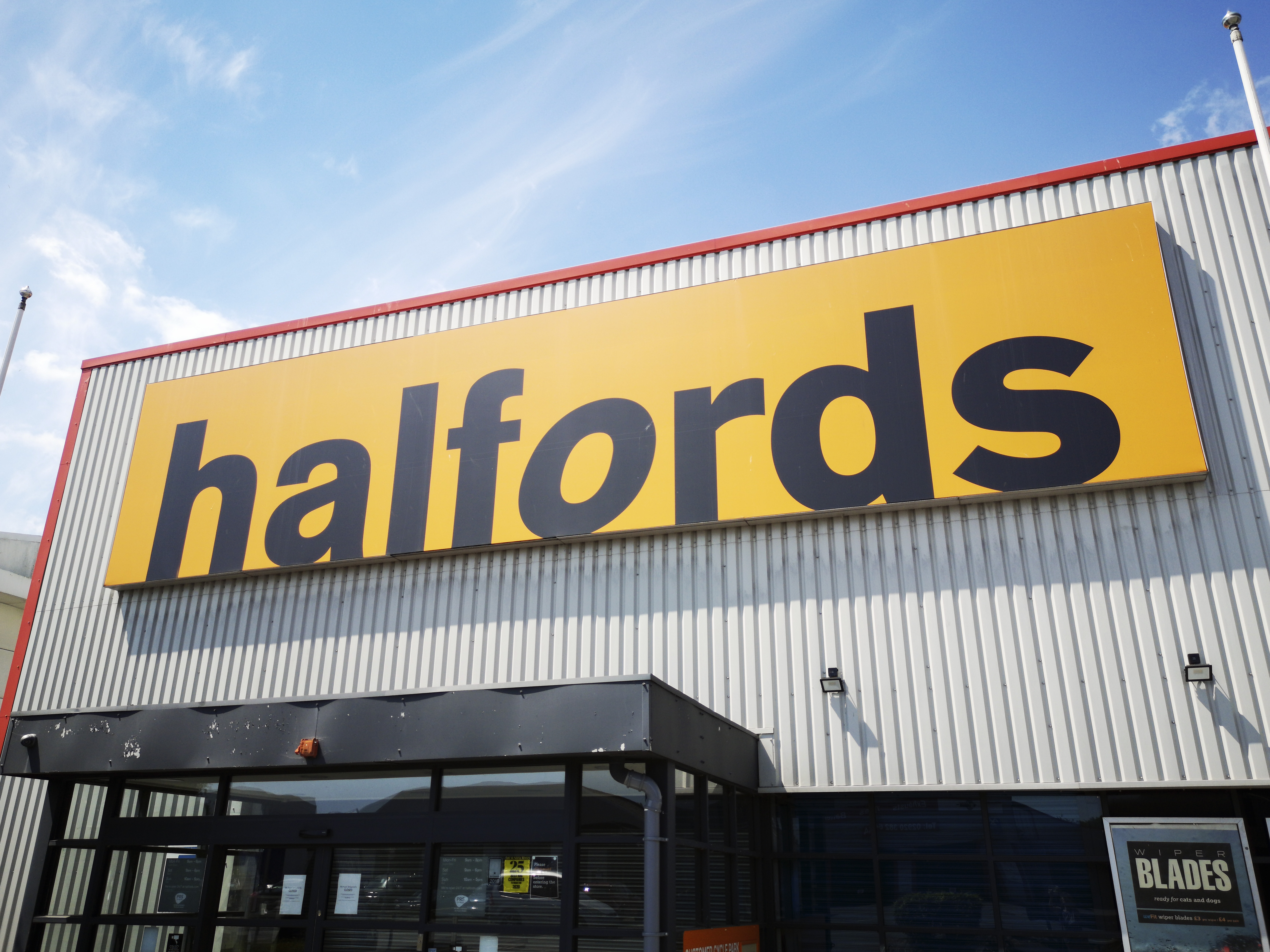 Positive signs for UK bike industry as Halfords cycling sales grow
Positive signs for UK bike industry as Halfords cycling sales growRetailer admits that the impact of Donald Trump's tariffs remains to be seen
By Tom Thewlis
-
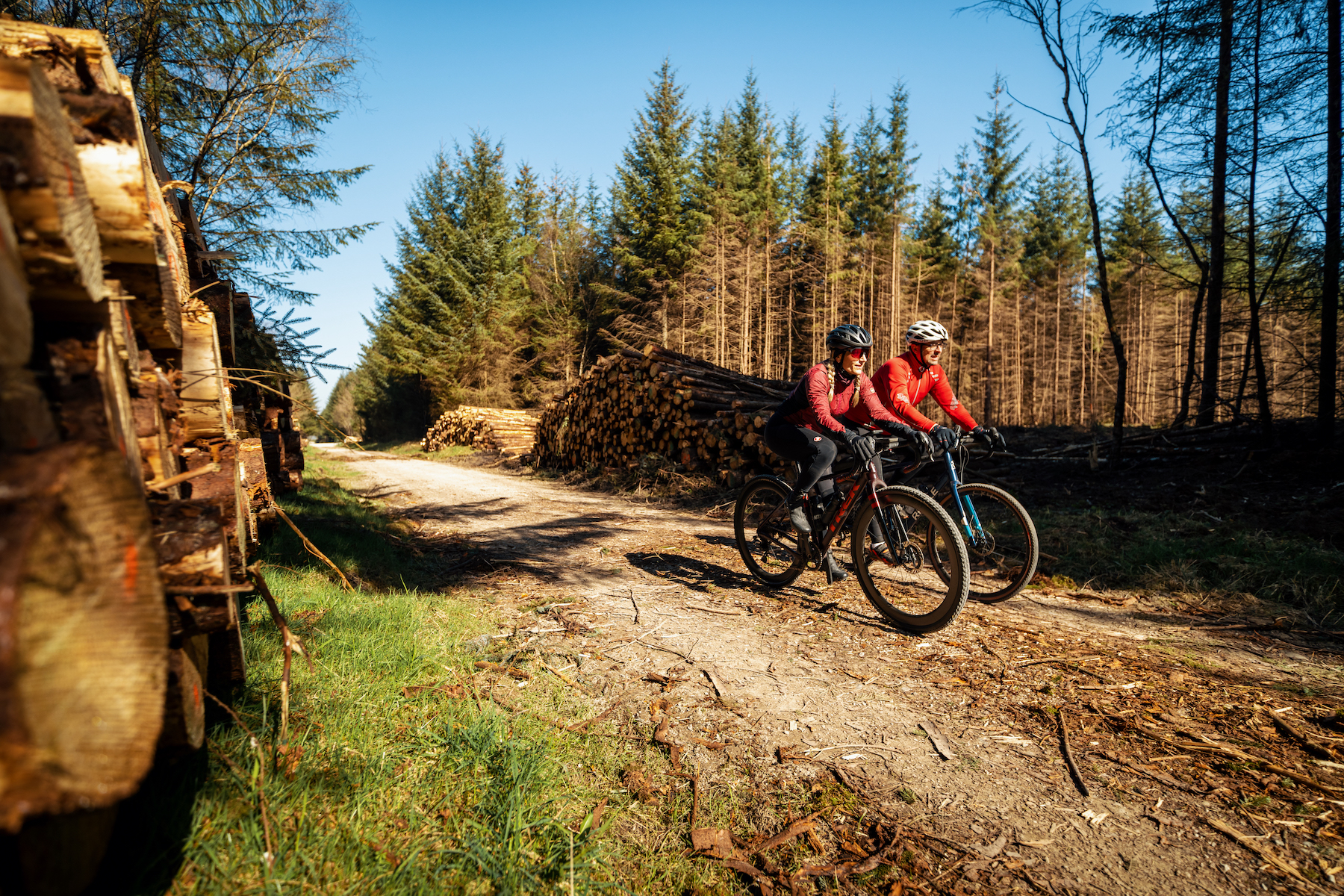 'We don't own gravel - it's a community thing': the spirit of gravel is safe, say British Gravel Championship organisers
'We don't own gravel - it's a community thing': the spirit of gravel is safe, say British Gravel Championship organisersCycling Weekly travels to Dalby Forest to ride the championship course and find out where we go from here
By James Shrubsall
-
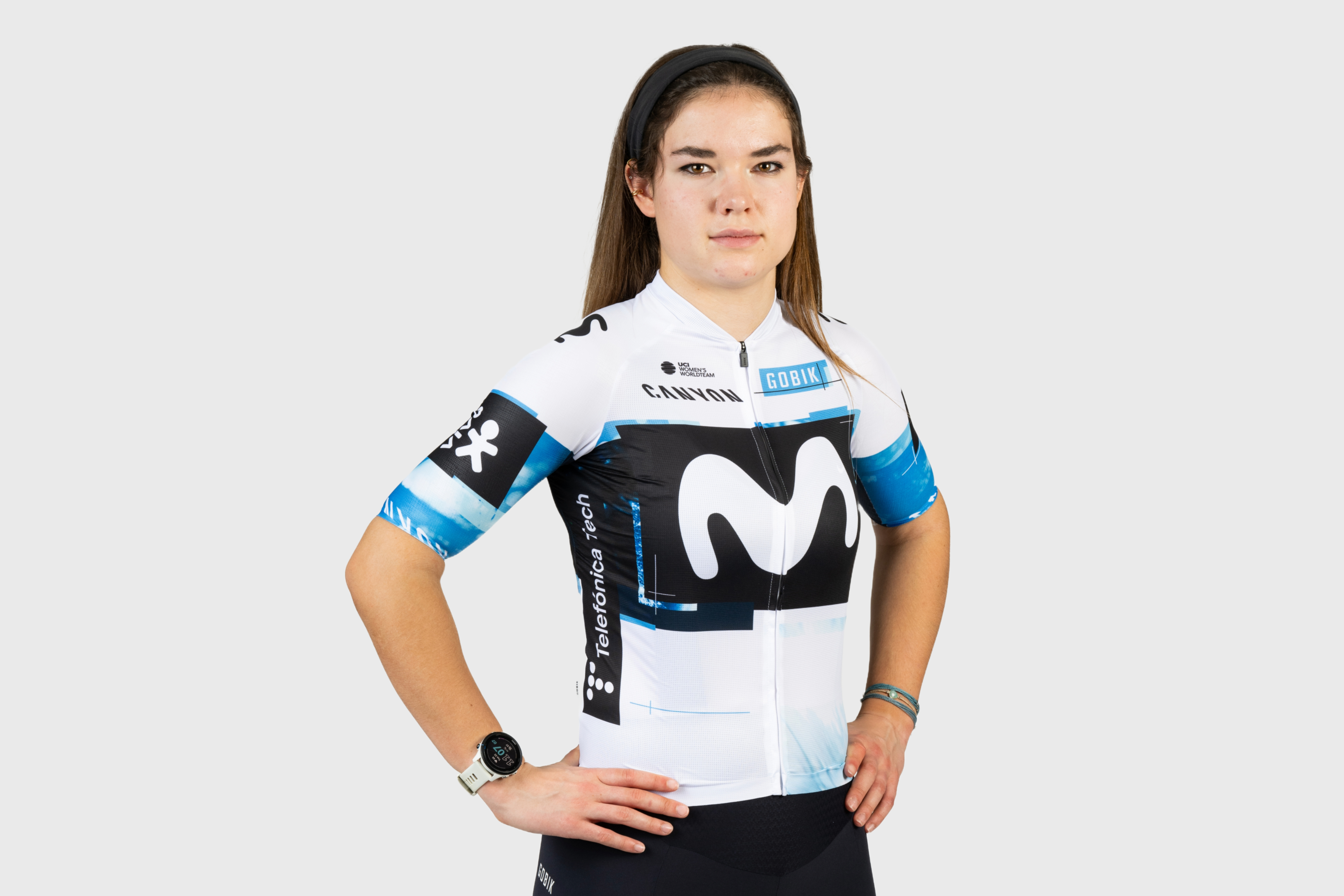 'It's a bit scary' - WorldTour's youngest rider to pair schoolwork with racing
'It's a bit scary' - WorldTour's youngest rider to pair schoolwork with racingA-level student Carys Lloyd is one of Movistar's latest recruits
By Tom Davidson
-
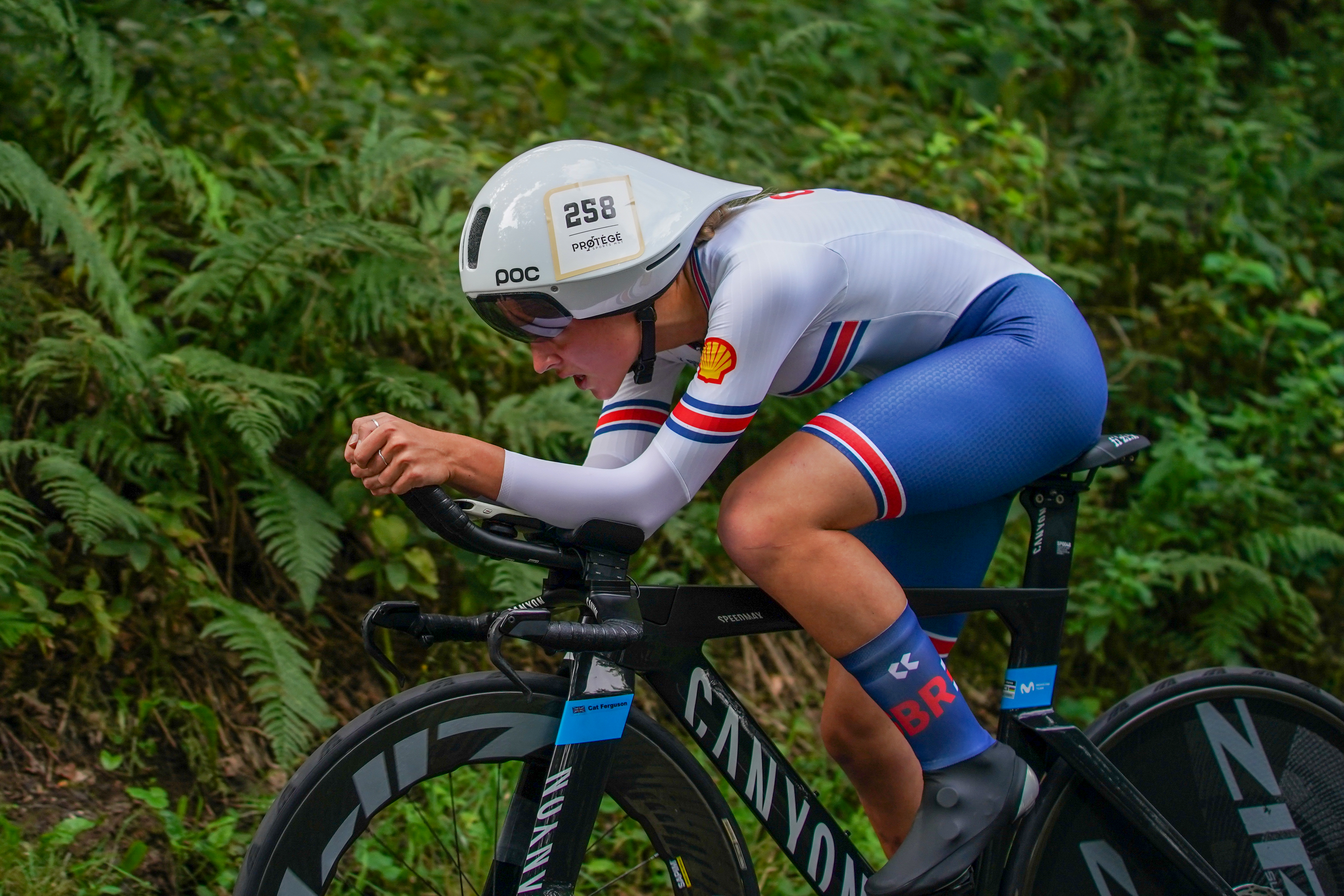 British super-talent Cat Ferguson set for pro debut this weekend
British super-talent Cat Ferguson set for pro debut this weekendEighteen-year-old to race La Choralis Fourmies in first Movistar outing
By Tom Davidson
-
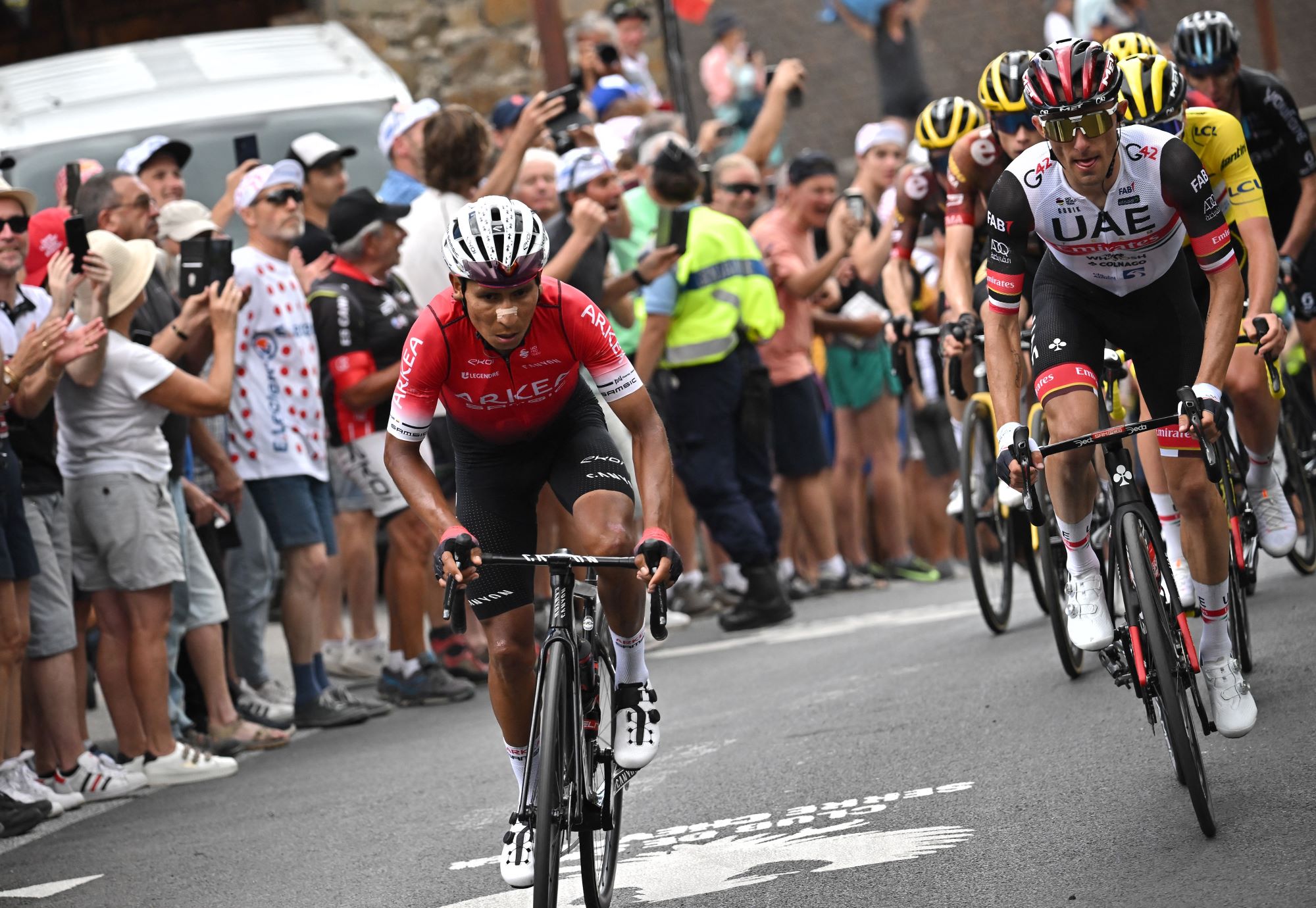 Nairo Quintana’s former doctor to face trial for doping offences
Nairo Quintana’s former doctor to face trial for doping offencesFredy Alexander Gonzales Torres is accused of "possession of a substance or method prohibited for use by an athlete" during the 2020 Tour de France
By Tom Thewlis
-
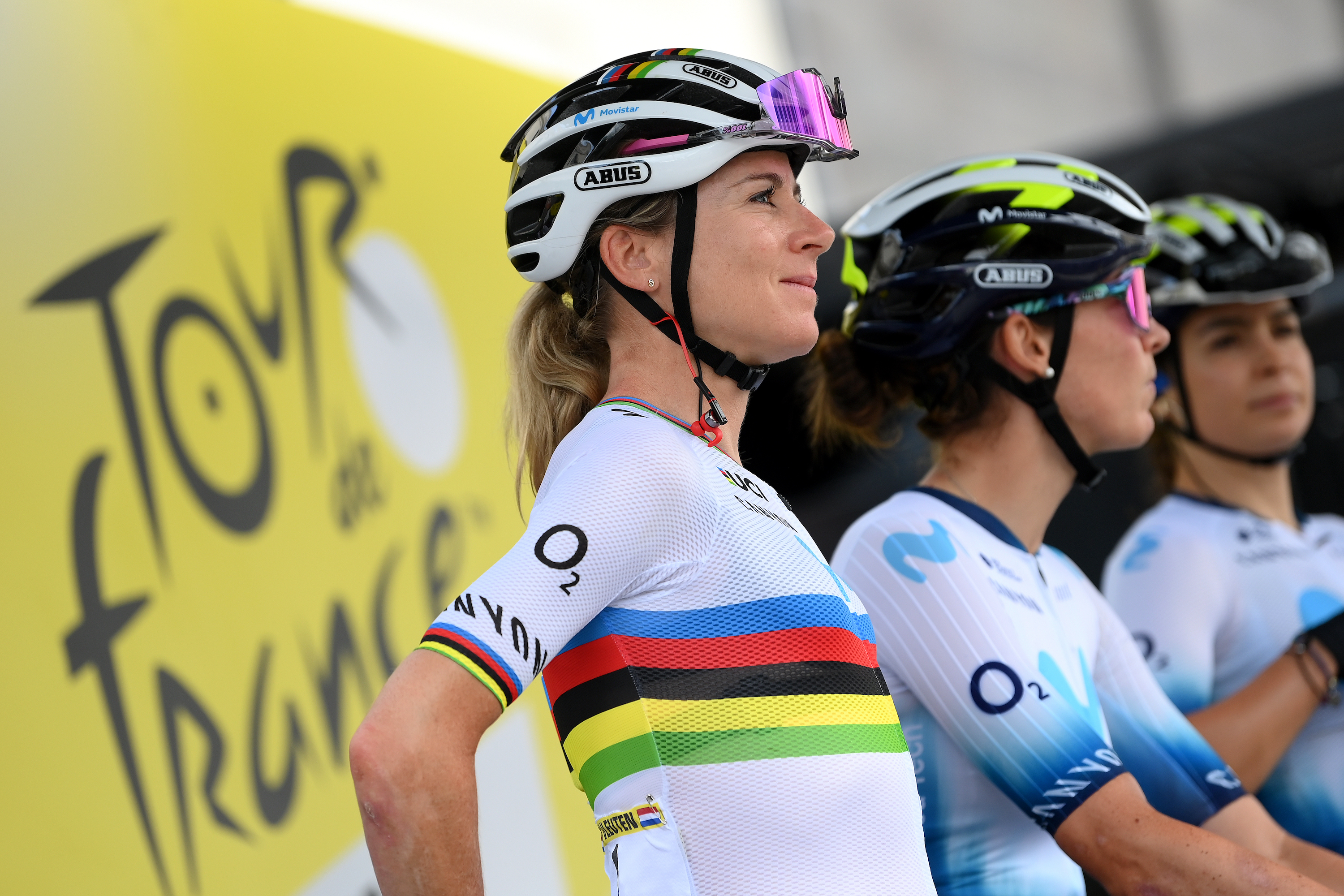 Opinion: There will never be another bike rider like Annemiek van Vleuten
Opinion: There will never be another bike rider like Annemiek van VleutenThe flying Dutchwoman could almost win it all, but now her era has almost ended, she should be remembered as the greatest
By Adam Becket
-
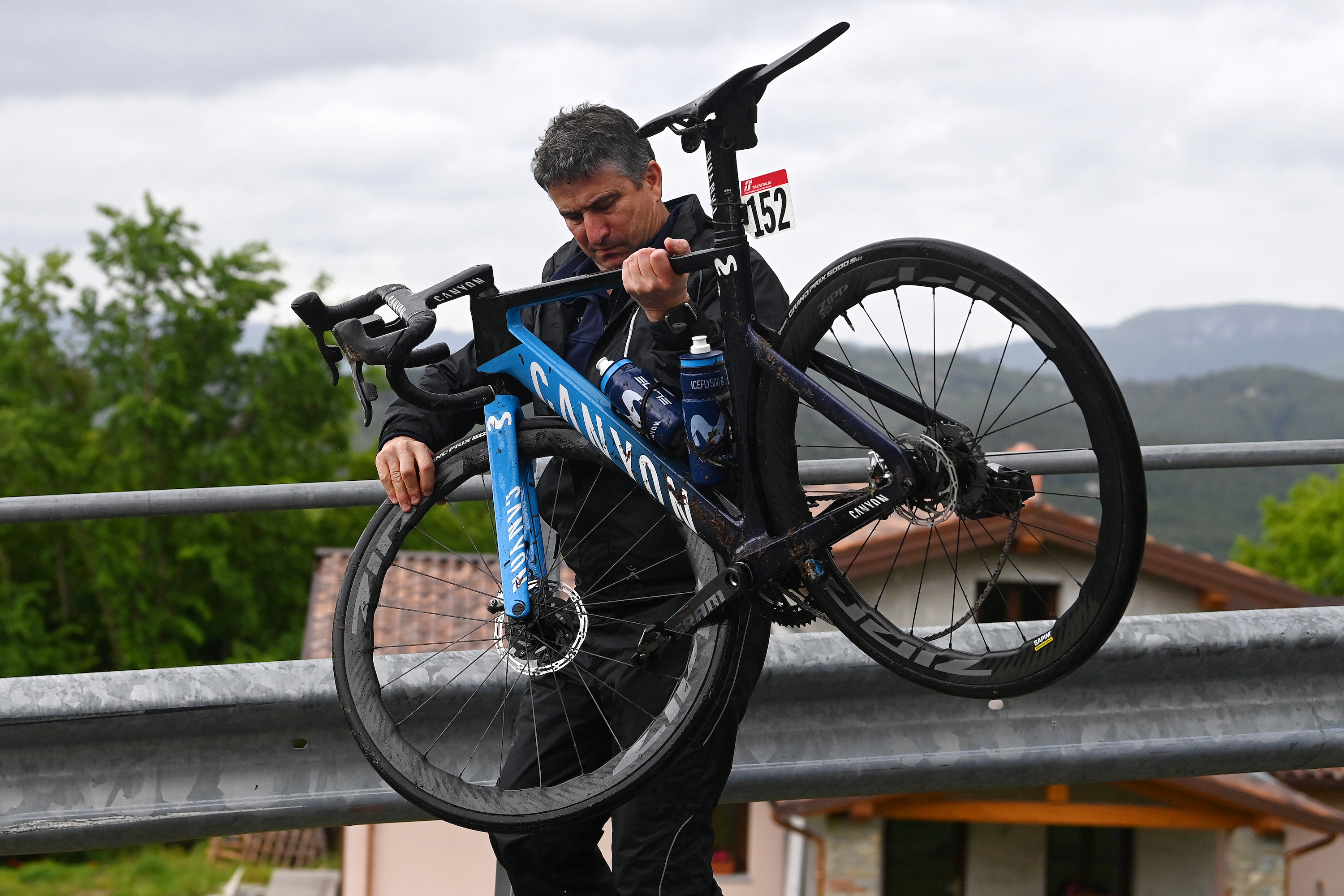 Will Barta's Canyon bike snaps in Giro d'Italia stage 10 crash
Will Barta's Canyon bike snaps in Giro d'Italia stage 10 crashMovistar rider was caught up in incident in sodden day at Giro d'Italia
By Adam Becket
-
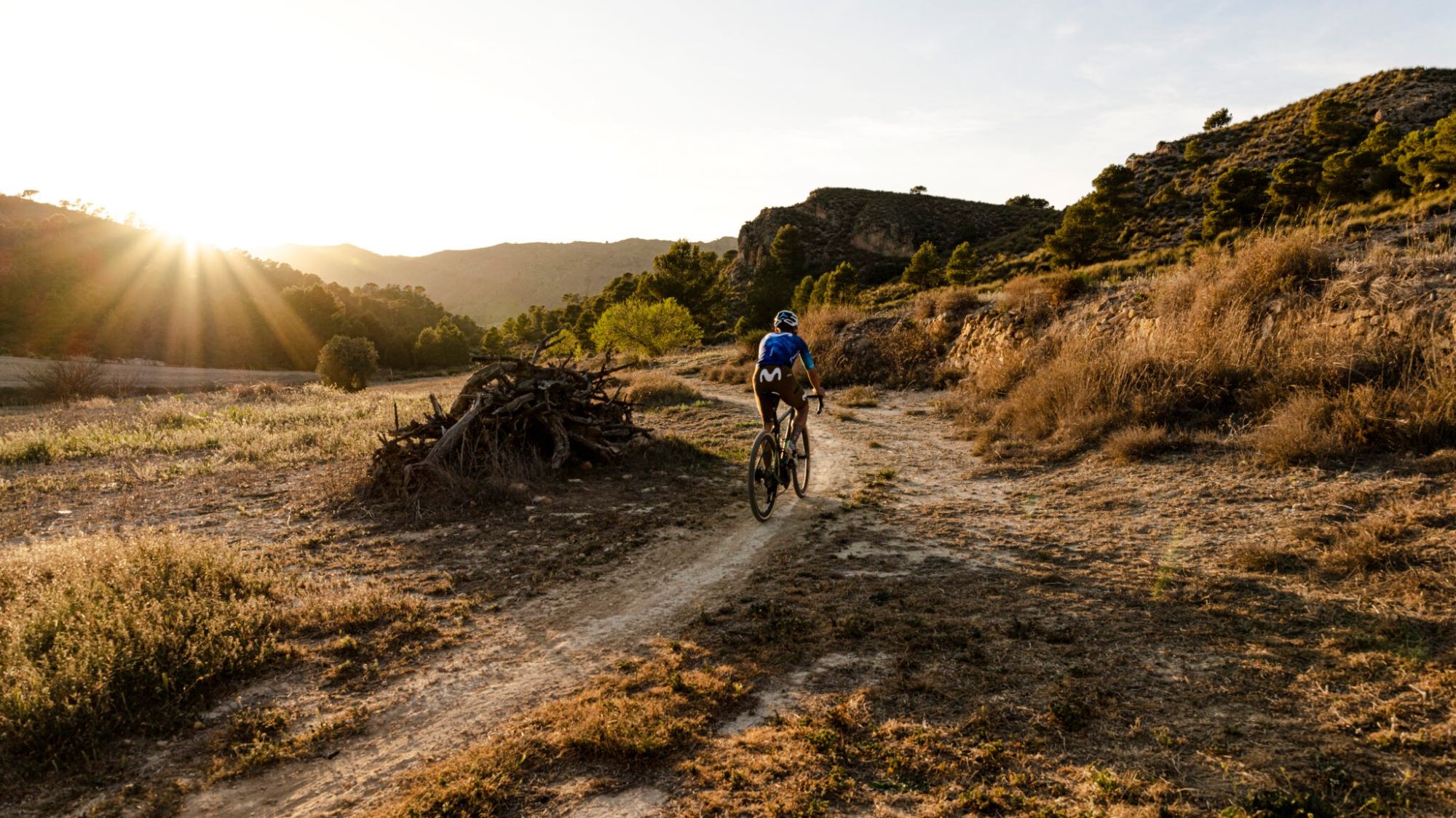 Alejandro Valverde to return to racing with new Movistar gravel squad
Alejandro Valverde to return to racing with new Movistar gravel squadSpanish veteran will pin on numbers in his first ever gravel race at ‘La Indomable’ in Spain on 23 April
By Tom Thewlis
-
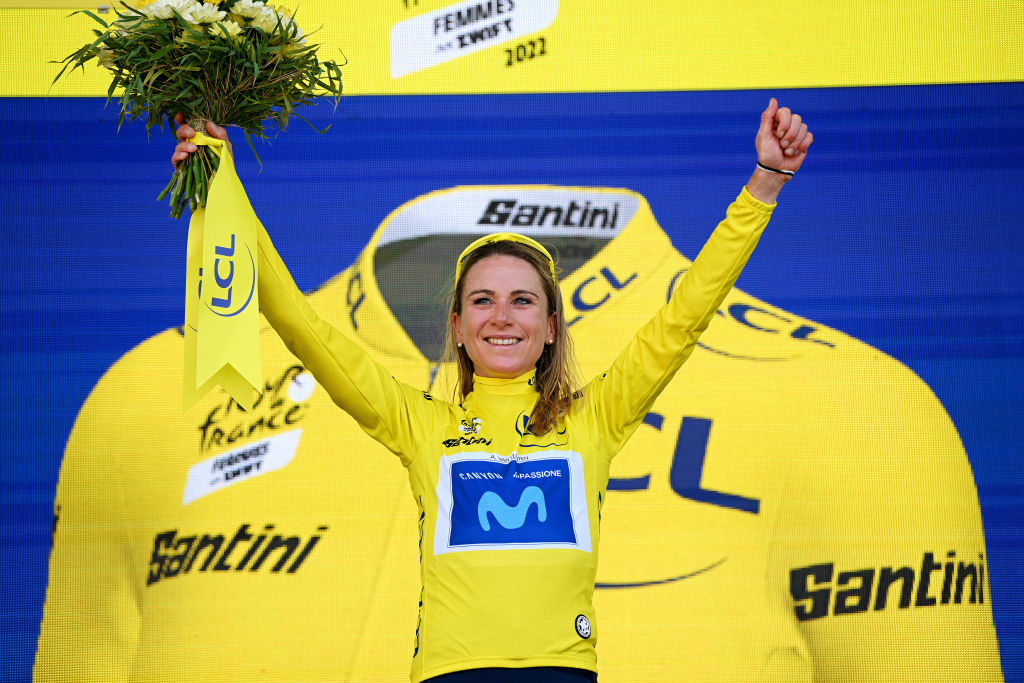 Women’s WorldTour calendar 'a mess' and 'a nonsense' says Movistar boss
Women’s WorldTour calendar 'a mess' and 'a nonsense' says Movistar bossThe UCI must invest in the bottom of the pyramid to ensure the sport’s future says Sebastián Unzué
By Owen Rogers
-
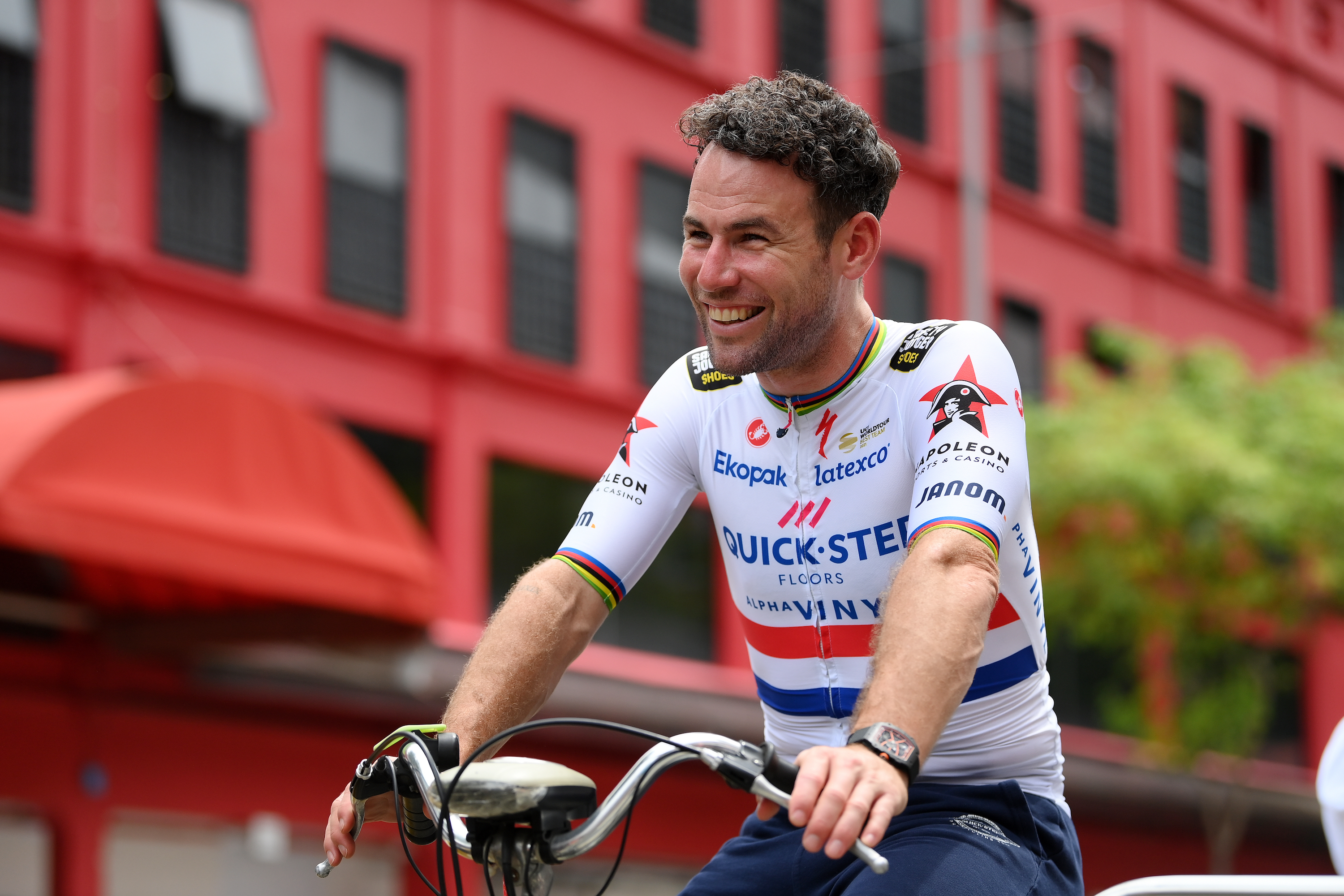 Movistar quick to quash Mark Cavendish signing report
Movistar quick to quash Mark Cavendish signing reportItalian press speculation over future of sprinter denied by Spanish team
By Adam Becket